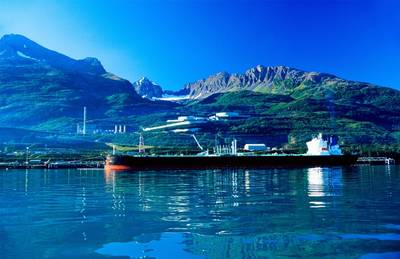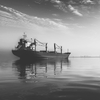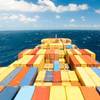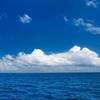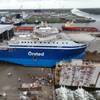Op-ed: Building on Don Young’s Legacy of Protecting Alaska Oceans
May 22 marks National Maritime Day. Congress established it in 1933 in commemoration of the steam ship Savannah and her maiden voyage, which was the first trans-Atlantic journey ever made by a steam-powered vessel. In the 203 years since the Savannah departed her eponymous port in Georgia for Liverpool, England, oceangoing technology has come a long way – and maritime shipping has become a supply-chain backbone that keeps goods arriving from all over the world. Much of this shipping activity travels along the Great Circle Route off Western Alaska.
The oceans surrounding Alaska are special: they’re pristine; a source of food; and a place for adventure, recreation, and commerce. Accidents on these waters can damage lives and communities for generations, as the Exxon Valdez oil spill in 1989 demonstrated. Following that disaster, Congress passed the Oil Pollution Act of 1990 (OPA90) to better protect our coastal waters by requiring industry-funded response capabilities and incentivizing safer shipping practices to prevent such incidents from occurring again.
Since then, industry operations, technology and the environment have evolved, giving rise to shipping routes unforeseen 30 years ago in Western Alaska and the U.S. Arctic. As a result, OPA90’s original intent is no longer well-served, as it has not kept pace with those changes. Stakeholder knowledge and advancements in maritime operations can and should be leveraged to modernize regulations, making them better suited for the 21st century and the evolving maritime activity off Alaska.
Fortunately, the U.S. House included language in the Coast Guard Authorization Act of 2022, named after Alaska Congressman Don Young, which updates spill response requirements to meet the evolving challenges of our large state and remote waters. It’s an important step in the right direction. I’m pleased to join Alaskans from across the state in urging the U.S. Senate to update OPA90 in this proactive way for the future health of our oceans, fish stocks, and communities.
The Authorization Act makes important and needed updates to OPA90 by:
- creating more clarity and transparency in the regulatory process,
- establishing minimum requirements for oil spill response capabilities, and
- tailoring those updates to the vast remote and sparse regions of Alaska’s coastal waters.
The simplest oil spill to clean up or maritime incident to salvage is the one that never happens; however, the current system of OPA90 regulations has made prevention efforts more challenging over the years due to arbitrarily interpreted regulations and modern technology not being taken into consideration.
The proposed solution in the Authorization Act requires development of clear, consistent, and transparent oil spill prevention and response rules for Western Alaska. These not only benefit shippers operating in Alaska but also regulators, stakeholders, and local communities. One clear set of rules will prevent confusion, reduce risk, and set clear expectations for all parties involved.
Collaboration in the development of these new regulations is critical, and the Authorization Act requires engagement from a variety of stakeholders, such as shipping and fishing interests, Alaska Native organizations, recreators and state regulators. The updated rules will reflect the values of Alaskans and the reality of the unique maritime challenges we face off our remote coastline.
This update to OPA90 also comes at a critical time. The Arctic Region holds great potential. Shippers are looking north to reduce costly global transits by traveling through the Arctic Ocean; cruise companies are expanding their horizons with voyages through the Northwest Passage; and nations are grappling with the security and environmental challenges posed by a warming circumpolar North. Protection and maintenance of the pristine Arctic environment is a top priority in these complicated and challenging discussions. The proposed updates to OPA90 proactively address incident prevention and response rules that work for Alaska at a defining moment of Arctic policy deliberation.
As we reflect on the history of global shipping, we must also look forward, and set the stage for what the next 50 years of Alaska ocean health and commerce. The late Congressman Young was instrumental in crafting the original OPA90, so it’s fitting that the 2022 Coast Guard Authorization Act is named in his honor. The legislation charts a positive future for the maritime industry and Alaska’s oceans – one of cooperation, collaboration, clarity and consistency. Like Congressman Young, the legislation aims to ensure that one of our most vital resources – our oceans – continues to thrive for generations to come. It has passed the House, and like other Alaskans, I’m hopeful it is improved, passes the Senate, and becomes law so Alaska’s oceans have the protections they truly deserve.
The author
Buddy Custard is the president and chief executive officer of the maritime safety and oil-spill response organization Alaska Chadux̂ Network. He possesses extensive knowledge and expertise from working in maritime operations in both the public and private sectors, including serving with the U.S. Coast Guard for over 30 years, attaining the rank of captain, and as an executive for an oil exploration and production company operating in the U.S. Arctic Outer Continental Shelf.



